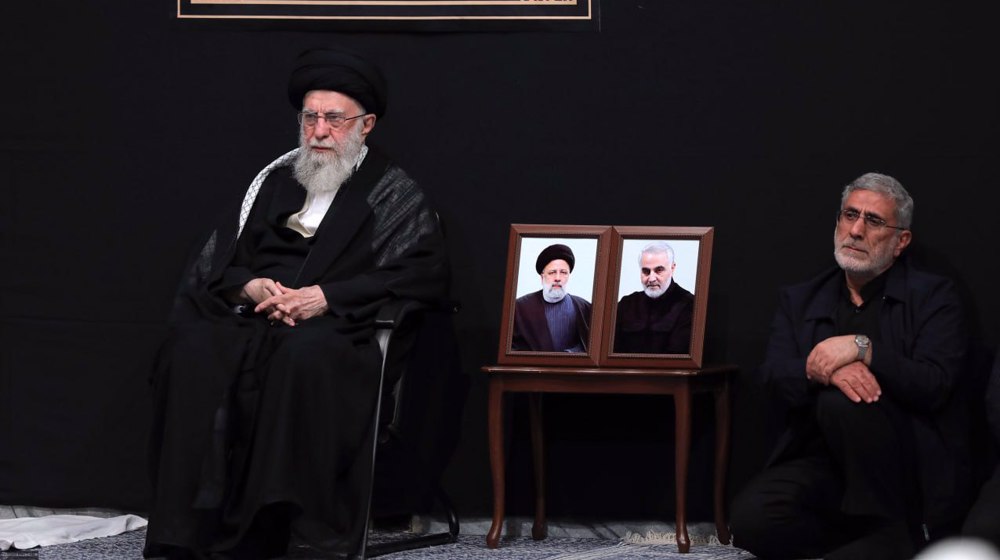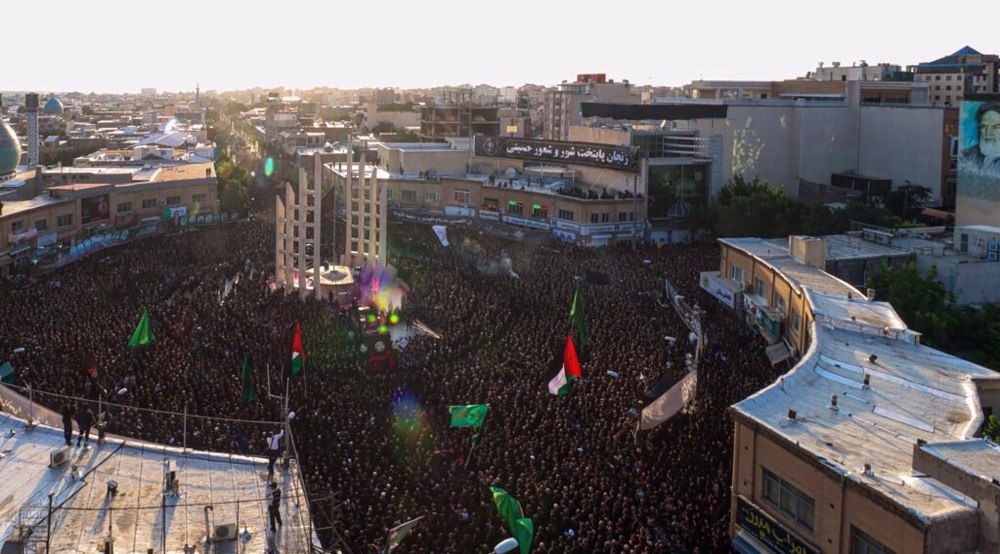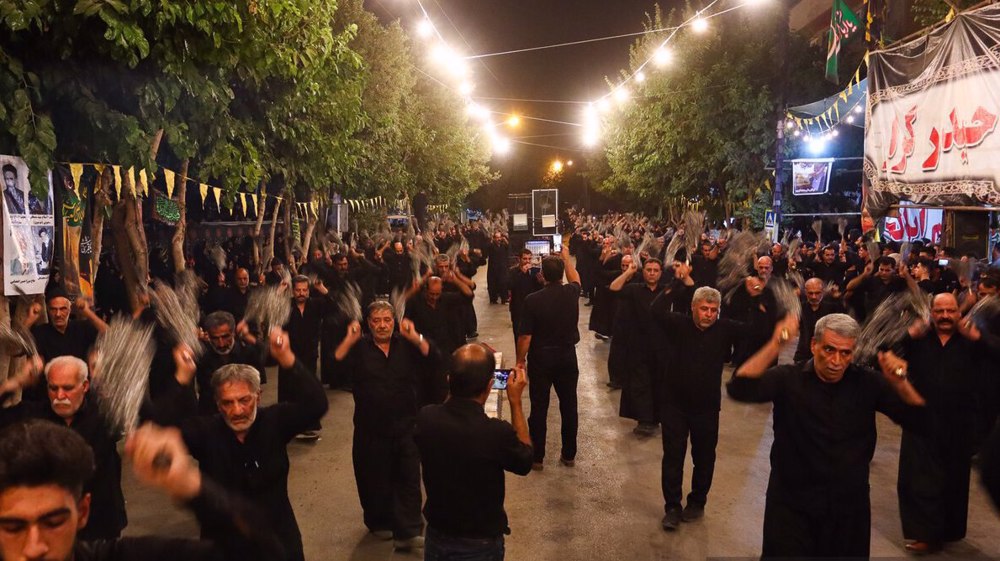Shia Muslims worldwide honored the occasion, which falls on the ninth day of the lunar calendar month of Muharram.
They held mourning processions, beating their chests, and chanting along with eulogists hailing the sacrifices of the Imam and his companions.
 Leader of the Islamic Revolution Ayatollah Seyyed Ali Khamenei (L) and Brigadier General Esmail Qa'ani, commander of the Quds Force of Iran's Islamic Revolution Guards Corps (IRGC), attend a mourning ceremony marking the night before Tasu’a, at Tehran’s Imam Khomeini Hussainiya on July 14, 2024. (Photo by Khamenei.ir)
Leader of the Islamic Revolution Ayatollah Seyyed Ali Khamenei (L) and Brigadier General Esmail Qa'ani, commander of the Quds Force of Iran's Islamic Revolution Guards Corps (IRGC), attend a mourning ceremony marking the night before Tasu’a, at Tehran’s Imam Khomeini Hussainiya on July 14, 2024. (Photo by Khamenei.ir)
On Sunday night, Tehran’s Imam Khomeini Hussainiya hosted a especial ceremony marking the night before Tasu’a with Leader of the Islamic Revolution Ayatollah Seyyed Ali Khamenei in attendance.
In the northwestern city of Zanjan, locals held passionate mourning ceremonies, including a massive procession marching from the city’s Grand Hussainiya.
Across Shia Islam, Imam Hussein (AS) represents the epitome of sacrifice and is known as Sayyed al-Shuhada (Master of the Martyrs).
The grandson of Prophet Muhammad (Peace be upon Him), and his 72 companions, were martyred in the Battle of Karbala, in southern Iraq, in 680 AD after fighting courageously for justice against the much larger army of the Umayyad caliph, Yazid I.
 Locals attend a large mourning procession marking Tasu’a in the northwestern Iranian city of Zanjan on July 15, 2024. (Photo by IRNA)
Locals attend a large mourning procession marking Tasu’a in the northwestern Iranian city of Zanjan on July 15, 2024. (Photo by IRNA)
Tasu’a mourning mainly focuses on Imam Hussain’s half-brother, Abbas, who made great sacrifices to protect the Imam and his family, and was eventually martyred on Ashura, a day before Imam Hussein himself.
He was martyred as he was trying to bring water for women and children in Imam's camp, who had no water to drink for days due to a siege laid by the enemy.
 Locals attend a mourning procession marking Tasu’a in Rehnan neighborhood in the central Iranian city of Isfahan.
Locals attend a mourning procession marking Tasu’a in Rehnan neighborhood in the central Iranian city of Isfahan.
Tasu'a is called the Day of Loyalty and Resistance in his honor of Abbas' loyalty to Imam Hussein and his bravery in the face of Yazid's massive army.
He is buried in the holy Iraqi city of Karbala in his own shrine, which is within walking distance from Imam Hussein's Mausoleum.